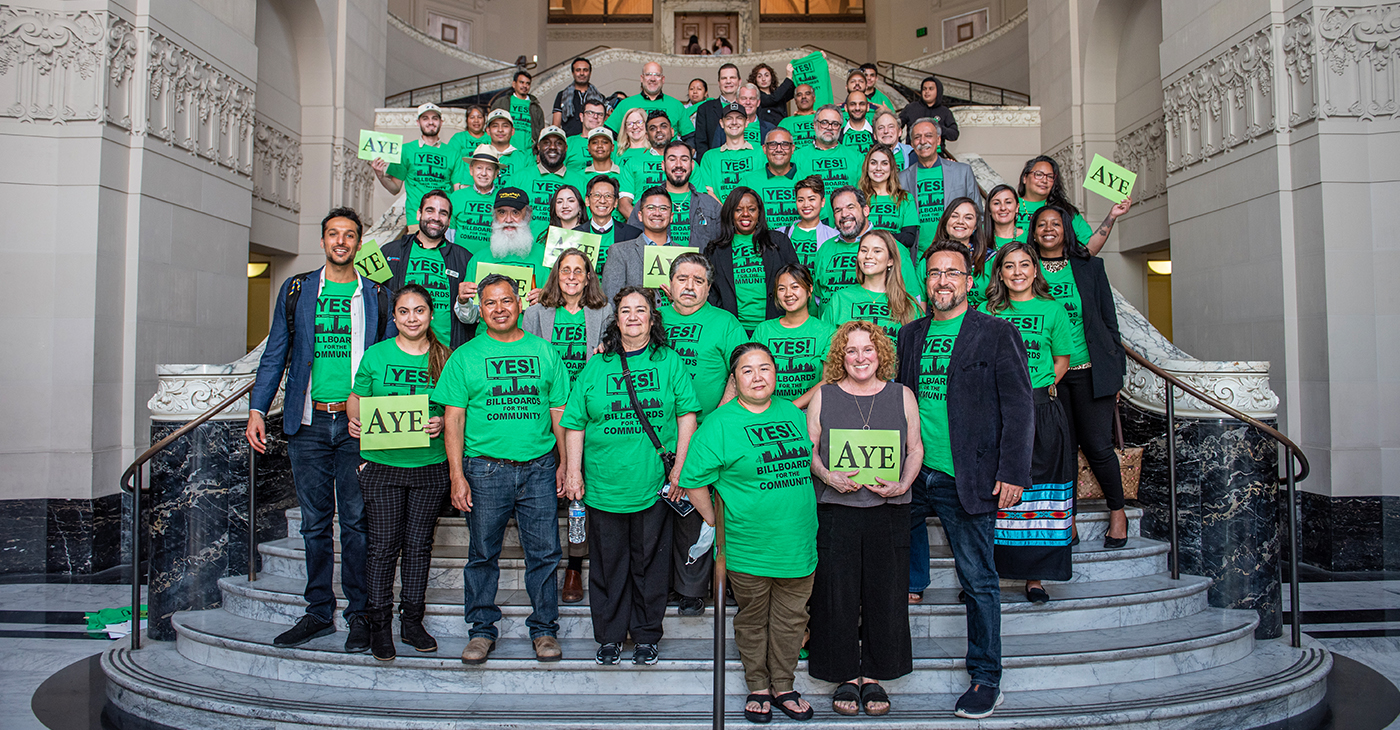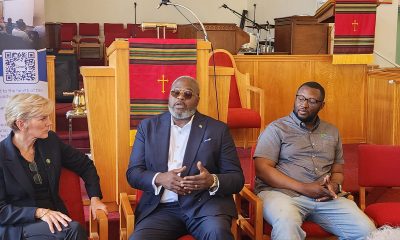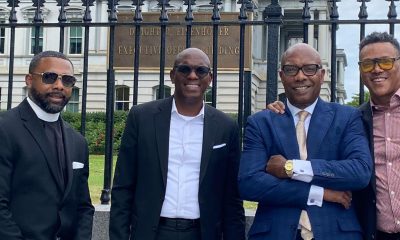Activism
Oakland A’s Star Tony Kemp Tells Us Why He’s Planting Trees, Messaging with Fans
For the 2021 baseball season, Kemp teamed up with a national organization and pledged to plant 100 trees in urban communities for every stolen base and extra-base hit he recorded.

By Nick Marnell, Bay City News Foundation
Oakland A’s infielder Tony Kemp picked a great year to pledge a charitable contribution based upon his on-field performance.
For the 2021 baseball season, Kemp teamed up with a national organization and pledged to plant 100 trees in urban communities for every stolen base and extra-base hit he recorded.
Fortunately for the environment, Kemp, 30, produced the best season of his six-year major league career, compiling 27 extra-base hits and eight stolen bases to go along with a strong .382 on-base percentage. He was also one of only two hitters in the American League (with at least two plate appearances per every regular season game) to walk more often than he struck out.
“I’m glad I got the chance to play and show what I can do,” Kemp said.
The 3,500 trees Kemp donated were just the catalyst as PG&E, one of the team’s corporate sponsors, doubled down on the pledge “to further its support of environment and sustainability awareness,” company representative Lynsey Paulo said. “With PG&E’s donation, there will be 7,000 trees planted as part of this program.”
On Dec. 10, volunteers from the A’s, PG&E, the City of Oakland and various charitable organizations met at Sobrante Park in Oakland and planted 15 trees. Kemp said he will plant trees this spring in his hometown near Nashville.
One of Kemp’s partners in the tree planting venture is Players for the Planet, a national organization founded by former major leaguer Chris Dickerson. Players for the Planet asserts a goal of uniting professional athletes to create positive change for the environment. “Our programs are designed by the players so they can contribute wherever they see a need or opportunity,” Dickerson said.
“I always wanted to do a reforestation project,” Kemp said. Possibly as a giveback for the amount of lumber used in his profession? Kemp chuckled, but said his goal was much greater than replacing a handful of broken bats. “I’ve always cared about the planet. I’ve been an advocate for a recycling project for a long time. This one was a no-brainer.”
Dickerson agreed that Kemp is a committed activist. “Tony has been a tremendous advocate for giving back to the community,” he said.
Addressing systemic racism
Even though he is not a fan of confrontation, in summer 2020 Kemp became one of the most active ballplayers speaking out against racial injustice. Haunted by the murder of George Floyd on May 25, 2020, and the unfolding civil unrest, Kemp logged onto Twitter on June 5, 2020, and posted to his followers, then numbering more than 40,000: “Let’s be honest. It’s been a tough week. If any of you want to talk or want to be more informed don’t hesitate to ask me.”
That tweet prompted a series of one-on-one direct message conversations with friends, teammates and fans about systemic racism and his own life experiences as a Black man. Kemp then formalized these conversations into a campaign called the +1 Effect.
Explaining the name of his campaign, Kemp said he wanted his perspective to achieve a domino effect, of one positive conversation leading to another, and then another, through honest and respectful dialogue.
“I ask questions. Simple questions, and there is no yelling,” said Kemp, in keeping with his distaste of confrontation. “Those who yell the loudest, what are they trying to accomplish?”
Kemp shared portions of a +1 Effect conversation he had with a suburban white woman in Texas who wanted to do a better job of combating racism but feared that she had no platform.
“Of course, you have a platform and voice,” Kemp told her. “You can always be an influence and inspiration to those around you.” He went on to explain that undoing systemic racism “starts with calling out people for their offhand comments that they may not even realize are racially biased.
“Make it known that you will not tolerate racism or prejudice in any way,” he advised her, and recommended media for her to check out, including “The 13th,” Ava DuVernay’s documentary about racism in the criminal justice system; Nikole Hannah-Jones’ “1619” podcast on how slavery shapes American culture to this day; and Ibram X. Kendi’s history-driven guide “How to Be Anti-Racist.”
Supporting Black kids
Kemp also gives back through the Players Alliance, an organization of major league ballplayers who work to create an inclusive culture within baseball in order to promote racial equality and provide greater opportunities for the Black community. According to Society for American Baseball Research, since Jackie Robinson broke the color line starting with the Brooklyn Dodgers in 1947, the percentage of Black players in the MLB peaked at 18.7% in 1981 and declined to less than 10% by the mid-2000s. In 2016, only 6.7% of major leaguers were Black.
“We’re trying to get Black players to mentor kids who can’t afford equipment to play baseball,” Kemp said. “Black kids look up to us, and we’re trying to help these kids understand that they can succeed in Major League Baseball.”
Kemp, though, is realistic about the slim chances for kids to make it to the big leagues, as Kemp himself fought through early life and career struggles. His parents divorced when he was 12. He was repeatedly optioned to the minor leagues while with the Houston Astros.
Kemp drew on his inner strength and closeness to his family — especially his older brother Corey — to help get him through the rough patches.
Corey told his brother that it was never going to be easy for him to succeed in athletics because Kemp was the little guy.
“They’re always going to be looking at the big guy,” Corey Kemp said. “You’ve got to keep a chip on your shoulder, get back out there and continue to perform.”
The advice worked. “I realized there will always be guys physically stronger than me,” said Kemp, who is 5-feet-6-inches tall and 160 pounds. “But they will never be stronger mentally.”
Understanding that the baseball hopefuls he mentors will need a fallback position should their baseball dreams flame out, Kemp imparted reality to the young athletes when he demonstrated the importance of a strong educational foundation at an Alliance event in Oakland.
“I got out a book and a baseball. I asked the kids to stand on each one and see which one provided more stability,” he said. “They got the message. I told them that getting a degree is always the end goal.”
Activism
Oakland Post: Week of July 24 – 30, 2024
The printed Weekly Edition of the Oakland Post: Week of July 24 – 30, 2024

To enlarge your view of this issue, use the slider, magnifying glass icon or full page icon in the lower right corner of the browser window. ![]()
Activism
Oakland Post: Week of July 17 -23, 2024
The printed Weekly Edition of the Oakland Post: Week of July 17 -23, 2024

To enlarge your view of this issue, use the slider, magnifying glass icon or full page icon in the lower right corner of the browser window. ![]()
Activism
Community Celebrates Historic Oakland Billboard Agreements
We, the Oakland Billboard Economic Development Coalition, which includes Oakland’s six leading community health clinics, all ethnic chambers of commerce, and top community-based economic development organizations – celebrate the historic billboard agreements approved last year by the Oakland City Council. We have fought for this opportunity against the billboard monopoly, against Clear Channel, for five years. The agreements approved by Council set the bar for community benefits – nearly $70 Million over their lifetime, more than 23 times the total paid by all previous Clear Channel relocation agreements in Oakland combined.

Grand Jury Report Incorrect – Council & Community Benefit
We, the Oakland Billboard Economic Development Coalition, which includes Oakland’s six leading community health clinics, all ethnic chambers of commerce, and top community-based economic development organizations – celebrate the historic billboard agreements approved last year by the Oakland City Council. We have fought for this opportunity against the billboard monopoly, against Clear Channel, for five years. The agreements approved by Council set the bar for community benefits – nearly $70 Million over their lifetime, more than 23 times the total paid by all previous Clear Channel relocation agreements in Oakland combined.
Unfortunately, a recent flawed Grand Jury report got it wrong, so we feel compelled to correct the record:
- Regarding the claim that the decision was made hastily, the report itself belies that claim. The process was five years in the making, with two and a half years from the first City Council hearing to the final vote. Along the way, as the report describes, there were multiple Planning Commission hearings, public stakeholder outreach meetings, a Council Committee meeting, and then a vote by the full Council. Not only was this not hasty, it had far more scrutiny than any of the previous relocation agreements approved by the City with Clear Channel, all of which provide 1/23 of the benefits of the Becker/OFI agreements approved by the Council.
- More importantly, the agreements will actually bring millions to the City and community, nearly $70M to be exact, 23 times the previous Clear Channel relocation agreements combined. They certainly will not cost the city money, especially since nothing would have been on the table at all if our Coalition had not been fighting for it. Right before the decisive City Council Committee hearing, in the final weeks before the full Council vote, there was a hastily submitted last-minute “proposal” by Clear Channel that was debunked as based on non-legal and non-economically viable sites, and relying entirely on the endorsement of a consultant that boasts Clear Channel as their biggest client and whose decisions map to Clear Channel’s monopolistic interests all over the country. Some City staff believed these unrealistic numbers based on false premises, and, since they only interviewed City staff, the Grand Jury report reiterated this misinformation, but it was just part of Clear Channel’s tried and true monopolistic practices of seeking to derail agreements that actually set the new standard for billboard community benefits. Furthermore, our proposals are not mutually exclusive – if Clear Channel’s proposal was real, why had they not brought it forward previously? Why have they not brought it forward since? Because it was not a real proposal – it was nothing but smoke and mirrors, as the Clear Channel’s former Vice President stated publicly at Council.
Speaking on behalf of the community health clinics that are the primary beneficiaries of the billboard funding, La Clinica de la Raza CEO Jane Garcia, states: “In this case, the City Council did the right thing – listening to the community that fought for five years to create this opportunity that is offering the City and community more than twenty times what previous billboard relocation agreements have offered.”
Oakland Billboard Economic Development Coalition
| Native American Health Center | La Clínica de la Raza | West Oakland Health Center |
| Asian Health Services | Oakland LGBTQ Center | Roots Community Health Center |
| The Unity Council | Black Cultural Zone | Visit Oakland |
| Oakland African American Chamber of Commerce | Oakland Chinatown Chamber of Commerce | Oakland Vietnamese Chamber of Commerce |
| Oakland Latino Chamber of Commerce | Building Trades of Alameda County | (partial list) |
-

 Arts and Culture3 weeks ago
Arts and Culture3 weeks agoRooted in Tradition: The Intricate History of Black Hair Braiding
-

 Bay Area4 weeks ago
Bay Area4 weeks ago“I Will Not Be Bullied,” Says Oakland Mayor Sheng Thao
-

 Bay Area2 weeks ago
Bay Area2 weeks agoPG&E Increases Rates While Bay Area Households Are Struggling to Stay Afloat
-

 Business3 weeks ago
Business3 weeks agoGov Newsom: Raising Fast Food Minimum Wage to $20 Pays Off as Jobs Multiply in Industry
-

 Activism4 weeks ago
Activism4 weeks agoOpponents of Mayor Sheng Thao Are Calling on Her to Resign Following FBI Raid
-

 Community1 week ago
Community1 week agoHundreds Come to Jehovah’s Witnesses’ Assembly Hall for Three-Day Program of ‘Good News’ in Fremont
-

 Bay Area2 weeks ago
Bay Area2 weeks agoJuneteenth Mass Shooting Suspect Charge with Multiple Counts of Felony Assault by Alameda County DA Pamela Price
-

 Activism4 weeks ago
Activism4 weeks agoOakland Coliseum Sale to AASEG: A Model for Community Development and Inclusion





















































